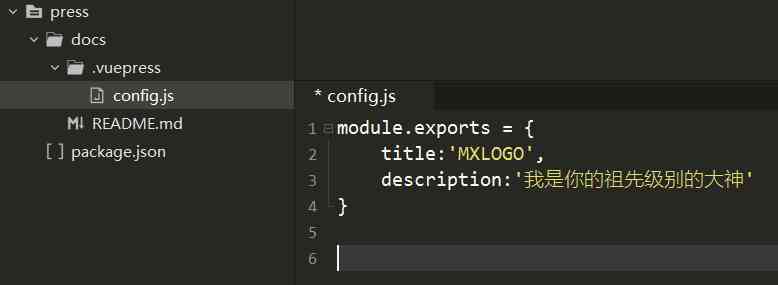Responsive foundations
Welcome to subscribe my official account < Life code >, perhaps CSDN special column
Vue 3 Introduction to the actual combat series
Declare responsive state
reactive amount to Vue 2.x Medium Vue.observable() API , To avoid being associated with RxJS Medium observables Confusion, so rename it . The API Returns a responsive object state . The responsive transformation is “ Depth conversion ”—— It affects all of the property.
Vue The basic use case for responsive state in is that we can use it during rendering . Because it depends on tracking , When the responsive state changes, the view automatically updates .
This is it. Vue The nature of responsive systems . When from a component data() When returning an object , It's left to reactive() Make it a responsive object . The template is compiled to be able to use these responses property Of Rendering function
We also follow the previous project , stay src/TemplateM.vue Write the following code :
Write a counter , By means of vue Derived from reactive,defineComponent Two methods ,
defineComponent Used to define components ,reactive Used to create responsive data .
Last in setup Function returns an object , Among objects add Method ,state Responsive data .
<template>
<div class="template-m-wrap">
<button @click="add">{{state.count}}</button>
</div>
</template>
<script>
import { defineComponent, reactive } from "vue";
export default defineComponent({
name: 'TemplateM',
setup() {
const state = reactive({
count: 0
})
const add = () => {
state.count++
console.log("state.count", state.count)
}
return {
state,
add
}
}
})
</script>
Create independent responsive values as refs
Imagine , We have a separate raw value ( for example , A string ), We want it to be responsive . Of course , We can create a string that has the same string property The object of , And pass it on to reactive.Vue It gives us a way to do the same thing ——ref:
ref Will return a mutable responsive object , The object as its internal value —— One Responsive references , This is the source of the name . This object contains only one named value Of property :
Again, we're in the code above , Add the following code :
<template>
<div class="template-m-wrap">
singleCount - {{singleCount}}
<button @click="add">{{state.count}}</button>
</div>
</template>
<script>
import { ref, defineComponent, reactive } from "vue";
export default defineComponent({
name: 'TemplateM',
setup() {
const state = reactive({
count: 0
})
let singleCount = ref(0)
const add = () => {
state.count++
singleCount++
console.log("state.count", state.count, singleCount)
}
return {
state,
singleCount,
add
}
}
})
</script>
In fact, we have noticed that , In the template , When ref As a rendering context ( from setup() Object returned in ) Upper property When returned and can be accessed in the template , It will automatically expand to internal values . There is no need to add... To the template .value.
Accessing responsive objects
Ref Unfolding only occurs in the responded form Object When nesting . When from Array Or native collection types such as Map visit ref when , It's not going to unfold :
We can see in the following code , Will a reactive([ref('Vue 3 Guide')]), And then according to books[0].value Visit :
<template>
<div class="template-m-wrap">
singleCount - {{singleCount}}
<button @click="add">{{state.count}}</button>
books {{books[0].value}}
</div>
</template>
<script>
import { ref, defineComponent, reactive } from "vue";
export default defineComponent({
name: 'TemplateM',
setup() {
const state = reactive({
count: 0
})
let singleCount = ref(0)
const books = reactive([ref('Vue 3 Guide')])
const add = () => {
state.count++
singleCount.value++
console.log("state.count", state.count, singleCount)
}
return {
state,
singleCount,
books,
add
}
}
})
</script>
const map = reactive(new Map([['count', ref(0)]]))
console.log(map.get('count').value)Responsive state deconstruction
When we want to use some of the large responsive objects property when , You may want to use ES6 deconstruction To get what we want property:
<template>
<div class="template-m-wrap">
singleCount - {{singleCount}}
<button @click="add">{{state.count}}</button>
books {{books[0].value}}
<br>
{{author}} - {{title}} - from - {{book}}
</div>
</template>
<script>
import { ref, defineComponent, reactive } from "vue";
export default defineComponent({
name: 'TemplateM',
setup() {
const state = reactive({
count: 0
})
let singleCount = ref(0)
const books = reactive([ref('Vue 3 Guide')])
const book = reactive({
author: 'Vue Team',
year: '2020',
title: 'Vue 3 Guide',
description: 'You are reading this book right now ;)',
price: 'free'
})
let { author, title } = book
const add = () => {
state.count++
singleCount.value++
console.log("state.count", state.count, singleCount)
}
return {
state,
singleCount,
books,
add,
author,
title,
book
}
}
})
</script>
Use readonly Prevent changes to responsive objects
Sometimes we want to track responsive objects (ref or reactive) The change of , But we also want to prevent it from changing somewhere in the application . for example , When we have one who is provide When the response object of , We don't want it to be changed at the time of Injection . So , We can create a read-only Proxy object :
import { reactive, readonly } from 'vue'
const original = reactive({ count: 0 })
const copy = readonly(original)
// stay copy Upconversion original Will trigger listener dependency
original.count++
// transformation copy Will fail and cause a warning
copy.count++ // Warning : "Set operation on key 'count' failed: target is readonly."




